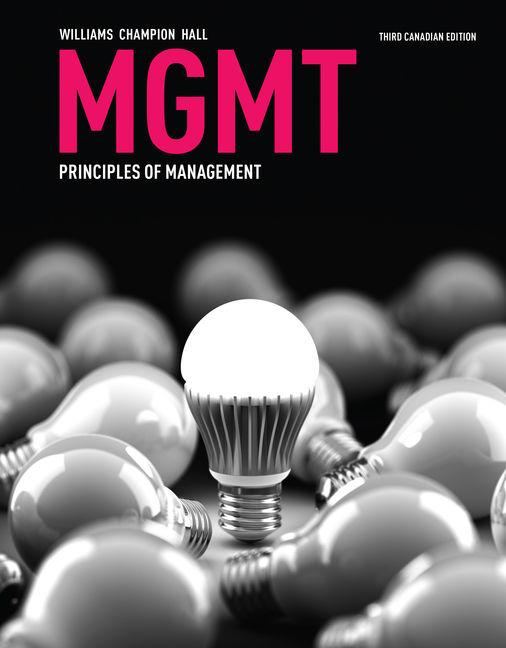Question
Context Conventional approaches to construction and infrastructure procurement have been consistently criticised for continuing to focus the competitive element - the tendering process - almost
Context Conventional approaches to construction and infrastructure procurement have been consistently criticised for continuing to focus the competitive element - the tendering process - almost solely on the determination of an initial price for a given design. By contrast, modern approaches to procurement are expected to consider wider client and stakeholder values. Both public and private sector clients have sought to introduce approaches that focus competition not only on economic factors - typically securing the lowest price possible - but also, on wider social and environmental outcomes.
In 2017 the UK government put it this way - "We will maximise the contribution that... investments can make to growth and productivity by strengthening consideration of broad strategic outcomes at the earliest stage... and then carrying them through all subsequent parts of the design and procurement process". In addition, in September 2021 it was emphasised the "The Government is committed to using its position as the single largest construction client to support adoption of a more productive, efficient and sustainable business model within the UK construction sector".
You work for a Management Consultancy advising clients on the suitability of design, procurement, and project management solutions with a focus on how to "procure for value".
You have been approached by a North-West (England) public sector body (NWPSB) that wishes to build five Enterprise Centres to provide high-quality purpose-built office and workshops for businesses to rent with high-quality on-site facilities. Each of the historical regions of NW England - Cumbria, Lancashire, Greater Manchester, Liverpool City Region, and Cheshire - will have a Centre located within their rural hinterlands. These brand-new facilities, with space ranging from 200sqft to 100sqft, will be suitable for new and fledgling businesses. These business centres will include modern conference rooms, kitchens, toilets, and a shared break out / networking space with ample on-site car parking.
This public sector client body (NWPSB) has no recent experience of building. The "corporate memory" of the organisation remembers that in the past their projects tended to over-run on cost and time, and that they were usually disappointed with the traditional systems of procurement that seemed to prevent their construction partners from fully understanding and delivering on their wider needs. Hence, this client (NWPSB) is keen to keep "away from the traditional hostile contracting environment that characterises many construction projects to a system focused on collaboration and problem solving". Their main aim through the investment in the Enterprise Centres is to help stimulate the economy in the local communities, and they are keen that this shouldinclude the construction spend itself.
The public sector body (NWPSB) has no in-house expertise with regards to procurement methods, framework agreements, or social, economic and environmental value, nor general project management.
As public funds are involved the public body (NWPSB) will need to ensure that any spend is justifiable and that value for money can be evidenced. In addition, they are aware of recent policy changes and moves within the construction industry to have a more "values-driven" procurement agenda and that clients are attempting to shift the dial away from procuring on "lowest price only" towards making value-based procurement decisions that are "more likely to deliver the environmental, social, and economic outcomes" they want.
They are starkly aware that the UK construction sector has been warned that, 'The way in which procurement is often managed can reduce the likelihood that a building will be safe.'
They are also conscious that they have committed to include carbon reduction targets and reporting commitments explicitly in all their procurement commissions.
Although they are nervous about it, they are considering the use of framework agreements as their preferred procurement approach. They have been told that frameworks have been proven to provide a powerful tool for strategic planning, integrated teams, continuous improvement and the delivery of better, safer, faster and greener project outcomes. Yet, they feel that the potential of frameworks - although they are used widely across the public and private sectors - is poorly explained and poorly understood.
Therefore, as part of the development of their internal Business Case for the project/s, they are seeking specific help and advice from you/your Management Consultancy.
Task details You are tasked to Critically evaluate the traditional approaches to procurement explaining how the single-stage, fixed price procurement (that the Public Body has used in the past) gives rise to problems. Procurement Assessment Information/Brief Critically evaluate the potential of framework agreements and how they might help in delivering the aims of NWPSB for this development of five enterprise centres.
You may choose to apply the learning from the module directly into your current or recent workplace.
Step by Step Solution
There are 3 Steps involved in it
Step: 1

Get Instant Access to Expert-Tailored Solutions
See step-by-step solutions with expert insights and AI powered tools for academic success
Step: 2

Step: 3

Ace Your Homework with AI
Get the answers you need in no time with our AI-driven, step-by-step assistance
Get Started


